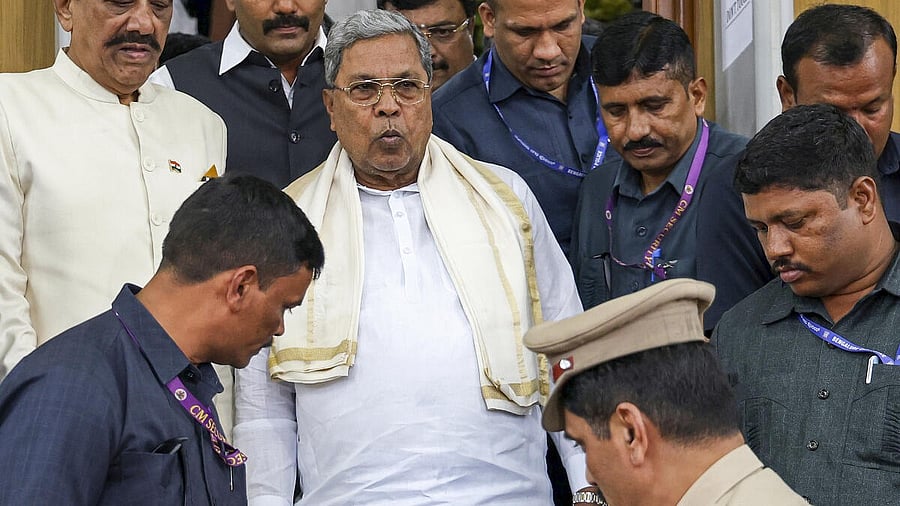
Karnataka Chief Minister Siddaramaiah
Credit: PTI Photo
Bengaluru: Implementation of the five ‘guarantee’ schemes without rationalising existing subsidies will exert pressure on the Karnataka's resources and impact fiscal deficits and debt levels, the Comptroller & Auditor General (CAG) has warned.
The CAG said this in its state finance audit report for the year ended March 31, 2024, which was tabled in the Karnataka Assembly on Tuesday. This is the first CAG audit to feature the ‘guarantee’ schemes.
The 2023-24 fiscal was the first year of the Congress’ government in which the ‘guarantee’ schemes - Gruha Lakshmi, Gruha Jyoti, Anna Bhagya, Shakti and Yuva Nidhi - were rolled out with a budget provision of Rs 36,538 crore.
The ‘guarantee’ schemes accounted for 15 per cent of the revenue expenditure in 2023-24, the CAG pointed out.
“During 2023-24, while the state’s revenue grew by 1.86 per cent over last year, its expenditure grew by 12.54 per cent. The increase in growth of expenditure was mainly on account of the guarantee schemes which was the contributing factor for revenue deficit of Rs 9,271 crore,” the CAG said.
“This mismatch of receipt and expenditure resulted in the state witnessing revenue deficit of Rs 9,271 crore after its recovery during 2022-23 from Covid-19 economic slowdown,” the CAG said.
The state’s fiscal deficit also rose from Rs 46,623 in 2022-23 to Rs 65,522 in 2023-24.
“To finance the guarantee schemes and the deficits arising thereof, the state availed net market borrowing of Rs 63,000 crore which was Rs 37,000 crore more than last year’s net borrowings (Rs 26,000 crore),” the CAG said. “This would not only increase repayment burden in the near future, but also would enormously increase the interest burden of the state,” the audit warned.
Capital expenditure towards infrastructure dropped by Rs 5,229 crore, the CAG found. “This has an impact on the increase in incomplete projects by 68 per cent. This compression in gross capital formation may prove to be detrimental to future growth prospects,” the report said.
The CAG noted that three of the ‘guarantee’ schemes -- Gruha Jyoti, Anna Bhagya and Shakti -- were in the form of subsidies. As a result, the state’s subsidy burden got pushed up to Rs 60,774 crore.
The finance department told CAG that the ‘guarantee’ schemes “boosted the local economy, reduced economic disparities and supported human capital development”.
However, the CAG said that the schemes “would strain the financial economy of the state” if existing subsidies are not rationalised.
